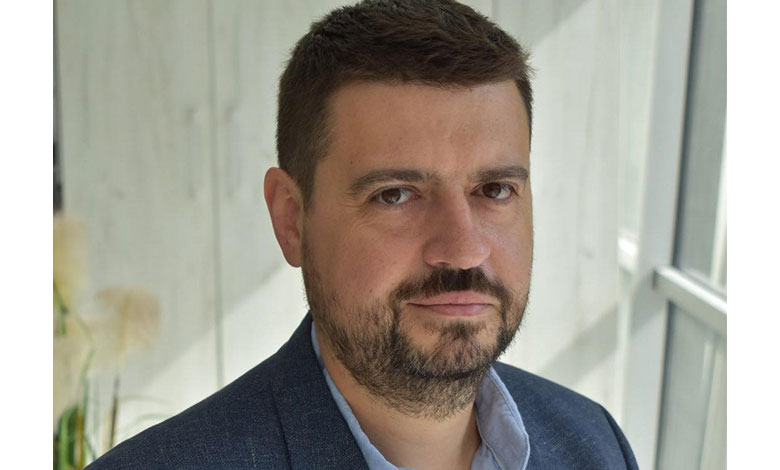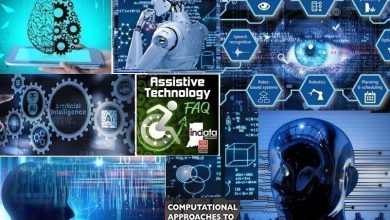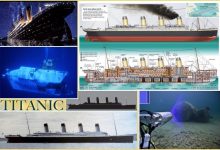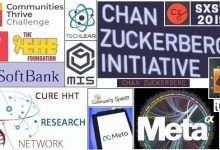
Can you tell me a bit about your background and your current role?
Yes, but first let me thank you for inviting me to give this interview for DiTech Media.
Talking about my background and career, I can divide it in two separate paths that interconnect with each other for more than 15 years within the areas of HR management, corporate culture, organizational and leadership development. The first path is connected to the companies I have been working for, starting from specialist to managerial roles. Here, in different periods I touched various aspects of the contemporary HR management. The second one, closely follows the first one and is more into researching, lecturing, consulting, coaching and leadership mentoring. This journey led me to the present roles of Organizational development and talent development manager for a leading FMCG company, Visiting lecturer at postgraduate studies in operational and strategic management, advisor and coach to CEOs and senior leaders from different industries.
Having said that research is part of what I do, in the last couple of years I worked on the development of different models of organizational culture, employee engagement, leadership competencies and coaching, embraced under one umbrella called the STAR Concept.
Taking part at the International Digital HR Conference you spoke about the upcoming New World. Can you tell us more about that?
How I see it is that what happened to us, to our environment and the world in general with the Covid crisis, is like a fast forward into the future. Many things changed, and they changed very fast, giving us very little time to think and adjust to what we didn’t see coming or we didn’t expect it that soon. This touched and influenced almost every aspect of our lives causing a series of changes. While some of the changes were more technical or operational such as remote working, digitalization and increased use of technology, others were connected to people as human beings such as habits, personal values and priorities. The crisis also caused global restructuring and repositioning within many industries. While one kind of industries collapsed due to closed borders, lockdowns and quarantines, other faced increased demands. Thus, many companies had to switch directions overnight.
So, many things changed, and they changed very fast. But what is even more important, many of these changes will stay after the end of the crisis. This creates a new world, one that was born in just couple of months without any warnings or early signs.
How organizations need to adjust and change to win in the New World? Can we call it a New Digital World?
All those changes that I mentioned demand that companies make a number of structural and operational changes. And I am not talking about small changes and tweaks here and there, but about crucial changes that will alter the way companies operate.
For the start, companies will need to redefine their priorities and rewrite their strategies. While the business plans that they had in place for 2020 were gone by as early as March, their mid and long-term plans need to be revised as well. Still from today’s perspective, it can be very difficult to make a solid three to five-year plan.
Taking it from there, many companies will need to make structural changes and change the way they operate to become leaner, faster, more agile and focused to what really matters to them and their business at the moment.
To become faster, companies will need to give more freedom and decentralize decision making. In that sense, global organizations will need to give more freedom to their local companies, and CEOs will need to give more freedom in decision making to their middle management.
Operating in the new environment that is, in so many aspects, different than the one that we had until February, and keeps on changing on daily basis, companies will not be able to rely on forecasts and predictions as much as they did until now. Their planning processes will need to be simplified and their plans will need to be more flexible and adaptable. Dealing with changed customer needs and behaviors, companies will need to think about developing new products and services, entering new markets and sizing opportunities.
Eventually, they will need to rethink and change their approach towards people to increase their wellbeing, engagement and connection to the company. My latest research showed that 41% of people feel less connected to their companies and 53% feel less connected because of the way their company handled the Covid crisis. About one third feel less engaged, and almost one-half plan to continue working from home after the crisis.
Answering the second part of the question, i.e. if we can call it a New Digital World, yes we can, by all means. Just take a look how much the use of technology and digitalization speeded up in the last months. Our offices are remote, conferences, workshops and trainings are online. The number of online shops multiplied by several times. Children and students study through specialized web platforms. Coffee bars and restaurants moved their menus online etc. All this set the dawn of a new digital era, where technology will overtake the old ways of working.
What are the key elements to winning in the New World?
Taken that this is an era of changes, companies will need to adjust and change themselves. Many of the changes will be crucial for their future success. This brings us to the three key elements for winning in the new world. The first element are people. While they are the key element for the success of the companies in any given point of time, in times such as this one the importance of engaged, connected and capable employees is magnified. Without people with these characteristics, changes will not be possible.
Another element that will make or break the success of the companies is their culture. Being simply defined as ‘the way we do things in the organization’ organizational culture has big influence on everything we do within the company. Based on a set of common values, habits and behaviors it defines the way people work, communicate and collaborate within the organization.
The third one, having influence on both people and culture are the leaders of the organization. They need to make sure that their people are been taken care of, engaged and equipped with the right competencies. And they are the ones that need to draw the contours of the organizational culture and give it life by role modeling.
What can we do about people?
There are two things that companies need to do. The first one is to protect their people, and the second one is to prepare and equip for tomorrow.
When we speak about protecting the people, organizations need to divide their actions and measures in two groups. The first are the measures for the protection of all employees within the company. The second, should be focused on protecting the talent.
Having all their employees in focus, companies need to protect them and keep them safe by taking care of their safety, physical and mental health, and wellbeing. Then they need to keep them connected and informed, unified under one mutual cause, understanding the direction the company is going towards.
Narrowing down their focus to the talents, organizations need to make sure that they are engaged, dedicated and feel connected to the company because if there is one thing that competitors are looking for in turbulent times, it’s talented, capable, high performing professionals and managers that will help them go through the crisis and prepare for tomorrow.
After we have made sure that people are protected, then the next thing to do is to prepare and equip for the future. Companies can do this in several steps.
First, rethink and redesign the organizational structure and processes in order to make them leaner, simpler, faster and more agile. Then, decentralize decision making and empower people to make decisions in their scope of work.
Capabilities are next on the list. companies can start by making a shortlist of skills and competencies that will be crucial for winning in the New World; then taking a look what kind of people and capabilities they need, what they currently have and how big is the gap they need to bridge.
Eventually, equip the teams with people with the right mindset and capabilities, and align them over a mutual purpose and vision.
How can we build a unifying, strong and adaptable organizational culture?
One thing that I constantly highlight is that culture is the hearth and the soul of the organization. Companies with strong, positive and winning cultures achieve significantly more than the ones with weak or negative cultures. They also handle crisis and challenges faster and more successfully.
In that direction, the first step in building a unifying, strong and adaptable culture is setting the foundations. This means defining the purpose (why does our organization exist), values (what do we stand for) and translating those values into specific behaviors that will drive actions, set principles and create habits (how are we going to do it).
When defining the purpose and values, it is important that companies explore more deeply in order to find what are those things that are unique to them and what they really stand for. Only that kind of purpose and values will be able to unify the employees under one mission and vision. It is very important not to copy something that is out there defined by other organizations, or to set foundations that people will have hard time connecting to.
After the foundations are set, the next step is to put up a culture shaping plan that will help the organization inspire and align people to join them on the journey towards the new culture. Role modeling and promoting by the managers here plays a critical role.
Eventually, such as it is with most of the change processes, it is beneficial to the success of the process to recognize, promote and celebrate culture champions, i.e. positive examples coming both from the line of the managers and employees.
You mentioned the role of the leaders. What is the new type of leaders?
Leaders play a crucial role to the overall success, and they are the ones that will make the other two elements work or not. To be able to win in the New World companies will need the best leaders in terms of values, personal engagement and dedication, mindset, skills and competencies. Repeating that what worked until 2019 will not work in 2021, for the New World companies will need a new type of a leader. The first leadership trait should be authenticity, which means that each leader should explore and find out who he or she really is and build their leadership style around that. Next to it is empathy as a core component of emotional intelligence. Leaders should be able and focused to understand and feel people’s emotions and moods in order to adjust their actions. Looking at the broader picture, the new environment demands for resilient and adaptable leaders. This means leaders that will not be easily demotivated, discouraged or disheartened, and also leaders that will be able to easily adapt to the changing conditions and circumstances. Going a step further from there, another important leadership characteristic for the future is agility, which beside resilience and adaptability also includes courage, simplicity and fast decision making. Eventually, going towards remote working and global workforces an important trait for the leader of tomorrow will be inclusiveness.
What is the single biggest challenge facing the HR department today?
Working in HR at the moment looks like juggling with burning challenges. Still, if I need to point out one single biggest challenge, that would be ensuring business continuity. To achieve this the HR department, first, has to make sure that the organization takes care of employees’ physical and mental health and wellbeing. Then they need to keep people informed, connected, engaged and unified around the company purpose and values so that they can contribute with passion and eagerness to survive and succeed.
What would be the competencies and skills required by future jobs according to you?
This is not a definite list, still there are some skills and competencies that came to the surface and became more important than previously. The most obvious one with the new way of working is the digital or technology savvy. Beside this, remote working and virtual teams require enhanced communication and collaboration skills. Working in adverse, volatile, changing and uncertain environment people will also need to upskill in adaptability and resilience, as well as become more courageous, entrepreneurial and solution focused. Emotional intelligence, especially empathy, will also be important as much as will be the intercultural skills, inclusiveness and diversity awareness.











